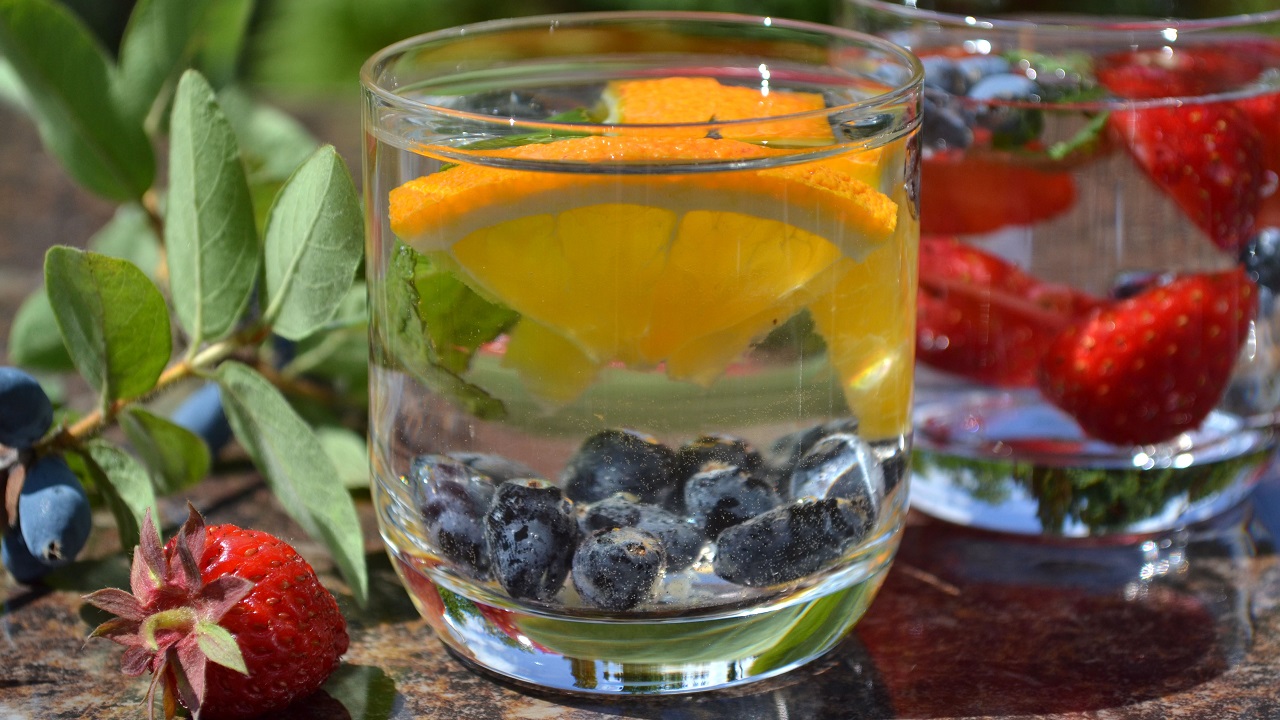For many, the long-awaited summer months bring to mind family picnics, cool drinks on the porch, and lazy afternoons at the beach. But, as temperatures soar, warm weather activities can increase the risk for another staple of summer: dehydration. Not getting enough fluids, especially when it’s hot outside, can pose serious health problems for anyone, but older adults are at particular risk for dehydration.
The Connection Between Aging and Dehydration
There are a few reasons why older adults are more susceptible to fluid and electrolyte imbalances. Muscle mass (an important storehouse for water in the body) and kidney function tend to decline with age, thereby diminishing the ability to conserve water. This can make it more difficult to adapt to things like fluctuating temperatures. Additionally, the sense of thirst diminishes with age. By the time a senior actually feels thirsty, essential fluids could already be extremely low.
Certain medical conditions and medications can affect the ability to retain fluids as well. Dementia patients may forget to eat and drink and may experience difficulty swallowing (dysphagia) that prevents them from getting the fluids they need. Drugs like diuretics, antihistamines, laxatives, antipsychotics, and corticosteroids can cause frequent urination that depletes water and electrolytes. Furthermore, seniors who experience incontinence often purposely refuse or limit fluids in order to avoid accidents.
Symptoms of Dehydration in Elderly Individuals
As a family caregiver, it’s important to watch for signs of dehydration and communicate with a doctor or health professional if you notice red flags that could indicate complications from low fluid intake or fluid loss.
Picking up on the subtle, early signs that a senior needs to increase their fluid intake is crucial. Keep in mind that thirst is not usually a helpful indicator, because a person who feels thirsty may already be dehydrated. Initial signs to look for include headache, constipation, muscle cramps, dry mouth and tongue, and sleepiness or lethargy. Urine color is another helpful indicator and should be clear or light yellow for someone who is properly hydrated.
If severe dehydration goes unchecked, it can cause seizures due to electrolyte imbalance, a reduction in the volume of blood in the body (hypovolemic shock), kidney failure, heat injuries, and even coma or death.
Signs of Severe Dehydration
- Little or no urination
- Dark or amber-colored urine
- Dry skin that stays folded when pinched
- Irritability, dizziness, or confusion
- Low blood pressure
- Rapid breathing and heartbeat
- Weak pulse
- Cold hands and feet
Recommended Fluid Intake for Elderly Individuals
Most of us drink plenty of fluids and eat foods with high water content to stay hydrated in warm weather. The general recommendation for adults is about 64 ounces of fluid every day, but that amount increases with heat and humidity and can change based on various medications and health conditions.
A good rule of thumb is to try balancing fluid intake with output. If a senior is sweating or urinating more frequently, then their fluid intake should become more frequent as well. A loved one who is suffering from an illness that causes fever, diarrhea, or vomiting should have their fluid intake carefully monitored. Keep in mind that you can still become dehydrated in cold weather, too!
Ways to Increase Fluid Intake
Remember, water isn’t the only option for staying hydrated. Most fluids count toward the recommended 64 ounces (except for alcohol), and many foods do, too.
If a senior refuses to drink plain water, there are plenty of modifications and alternatives available. Try using water enhancers, opting for pre-flavored waters, serving fruit juice diluted with water, or making infused waters.
Consider both savory and sweet flavors. Warm chicken, beef, or vegetable broth can be a soothing source of fluids and electrolytes that seems more like a “meal” and less like a drink. For those who are fond of sweets, popsicles, milkshakes, and smoothies may be more enticing options that function as a sweet vehicle for fluids.
How you serve beverages can affect a loved one’s willingness and ability to drink them, too. Individual preferences vary regarding the palatability of different temperatures. Experiment with serving temperatures for beverages to see if you can make them more appealing.
Drinkware can be an important component as well. Someone with low vision might be able to see an opaque, brightly colored cup more easily than a traditional water glass and therefore drink from it more often. Particularly resistant seniors may find a beverage more appetizing if it is served in a pretty glass or with garnish. For example, try serving a healthy smoothie in an old-fashioned soda fountain glass with a piece of fresh fruit on the rim.
Sometimes specialized drinkware may be necessary for those with swallowing difficulties, tremors, arthritis, motor skill problems, or muscular weakness. Cups with two handles, a no-spill lid, a built-in straw, or ergonomic features may simplify the process and prevent spills.
Hydrating Foods for Seniors
While water is the go-to for most people, keep in mind that beverages are not the only source of fluids. Raw fruits and vegetables can pack a hydrating punch as well. For example, a small plate of cut vegetables, like celery sticks, cucumber slices, cherry tomatoes, and bell pepper slices served with a healthy dressing or hummus for dipping can be a nutrition- and fluid-filled snack. Use the list below to add foods to your loved one’s diet that will help keep them hydrated.
Foods With High Water Content
Ingredient | Percent Water | Serving Size |
Cucumber | 96% | 1 cup peeled and sliced |
Tomato | 94% | 1 medium |
Watermelon | 92% | 1 cup diced, or 10 balls |
Bell pepper | 92% | 3/4 cup sliced |
Grapes | 92% | 1 cup |
Cantaloupe | 90% | 1/10 (1 small wedge) |
Orange | 97% | 1 medium |
Blueberries | 85% | 1 cup |
Apple | 84% | 1 medium |
If a senior has an aversion to fruits and vegetables, especially when they are uncooked, then high water content foods like crudités, salads, or gazpacho may be an unrealistic approach. Instead, adding healthy ingredients to foods they already enjoy can yield small victories for a caregiver. Try adding fresh berries to a loved one’s yogurt, cereal, or dessert, or including slices of tomato and a few leaves of lettuce in wraps and sandwiches. These may not seem like meaningful additions, but every little bit adds up. Incorporating these items on a daily basis can help your loved one prevent dehydration without significantly changing the amount of liquid they drink.
Another relatively new food option is edible hydration “balls” for elderly individuals. Interest in this concept has skyrocketed since a young man in the U.K. researched and invented a product called Jelly Drops for his grandmother with dementia after she was hospitalized for dehydration. Inventor Lewis Hornby and Jelly Drops received widespread media coverage and a video of his grandma Pat enjoying the hydrating sweets even went viral on social media. Jelly Drops are 95 percent water, sugar free, gluten free, and vegan, but they aren’t recommended for seniors with swallowing difficulties. They officially launched in the U.K. in 2020 and the U.S. earlier this year. Although it may not be as convenient as handheld “water sweets,” fruit gelatin like JELL-O can also be used to help promote hydration in seniors.
While these helpful guidelines make good health sense, they are general recommendations. Stay in communication with your loved one’s doctor and keep in mind that managing some chronic medical conditions, such as heart failure and kidney or liver disease, may require intentional restrictions of fluid intake.

